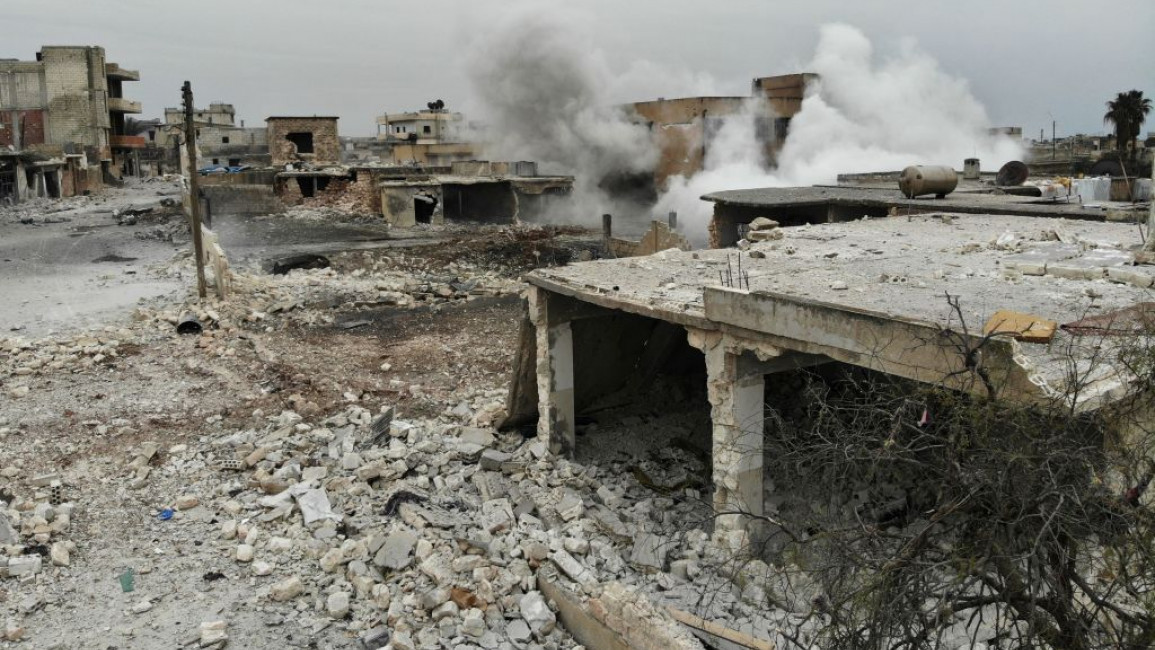Syria: Four children killed on way to school by regime shelling, monitor says
Four children were killed on their way to school on Monday morning after regime forces shelled a town in the Idlib region, Syria's last main rebel bastion, a war monitor said.
The shelling targeted Maarat Al-Naasan, a town in the northern countryside of Idlib province, the Syrian Observatory for Human Rights said.
An AFP correspondent took photographs that show a small lorry carrying three bodies wrapped in black plastic bags to the local cemetery.
One of the victims was buried elsewhere after he later died from his injuries.
Maarat Al-Naasan lies on a frontline between the regime and the rebels. It also houses a Turkish observation point on its outskirts.
The Observatory, which relies on a wide network of sources inside Syria, said it was unclear why the regime targeted the area.
On 12 February, regime shelling killed six people in the same town, including two women and two children.
The Idlib region bordering Turkey is home to about three million people, and is one of the last pockets to oppose Damascus after 11 years of war.
Hayat Tahrir Al-Sham, an extremist group headed by ex-members of Syria's former Al-Qaeda franchise, controls with its allies about half of the Idlib region and parts of neighbouring provinces.
After a months-long military campaign to flush out the enclave sparked fears of the war's worst bloodshed yet, a ceasefire deal was reached in March 2020.
The agreement brokered by the regime and the rebels' main backers - Russia and Turkey respectively - has largely held since, despite sporadic flare-ups.
The war in Syria has killed around half a million people and displaced millions more, the Observatory said.



